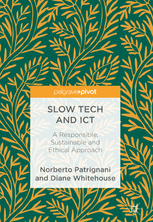Games for future education
I was invited by my friend Anna Maria Tammaro to make a presentation for a workshop of the Navigate Project, an Erasmus project that is about developing information and media literacy to fight fakenew using also games. There is a gallery of games in their NaviGame space and they’re working in designin new games. My presentation was focused on three main aspects: the pandemic increases the spreading of fakenews, creating an infodemic and how people changed their trust in information,…





